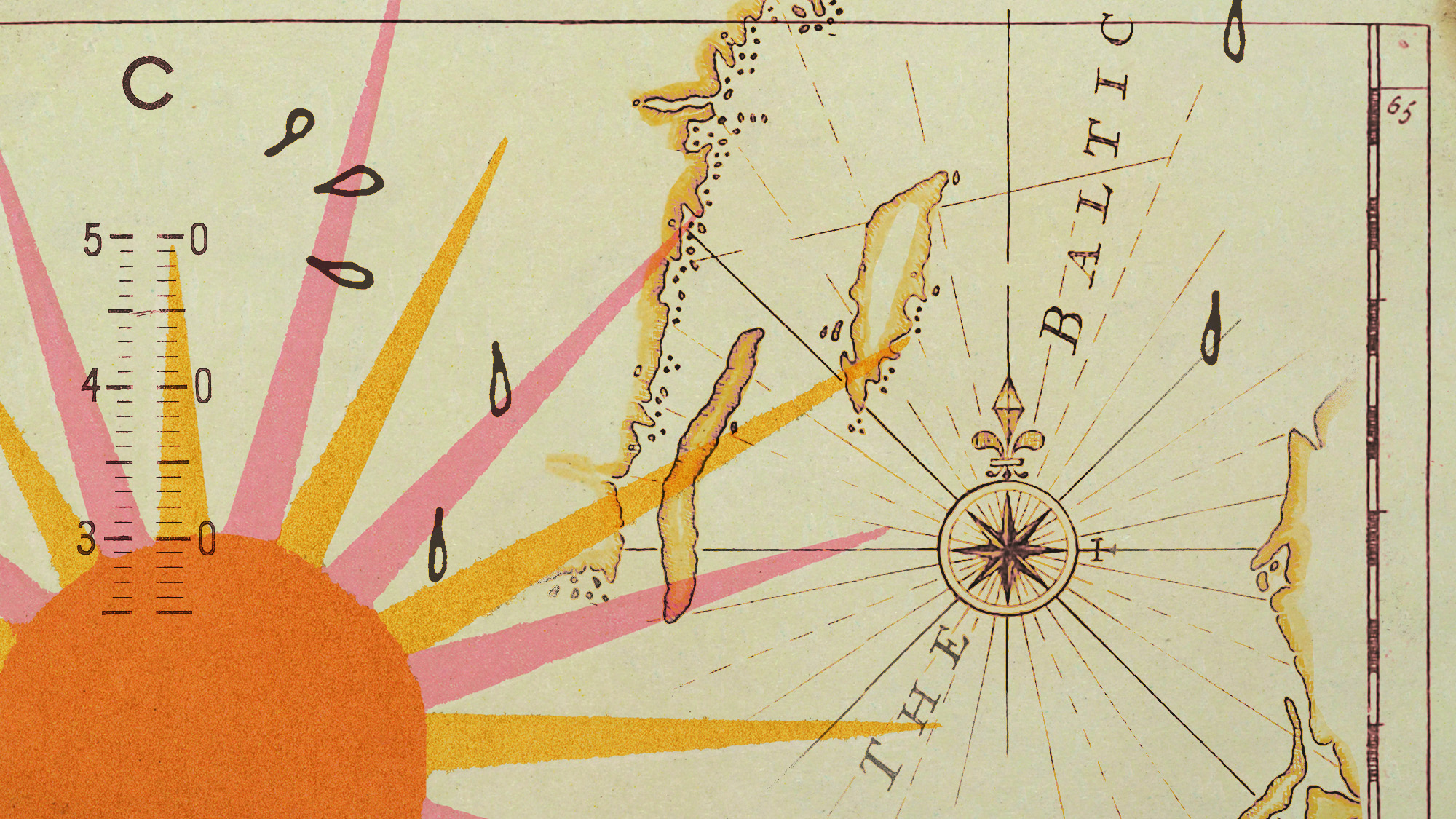What do heatwaves mean for Scandinavia?
A record-breaking run of sweltering days and tropical nights is changing the way people – and animals – live in typically cool Nordic countries

A free daily email with the biggest news stories of the day – and the best features from TheWeek.com
You are now subscribed
Your newsletter sign-up was successful
Heatwaves have hit Norway, Sweden, Finland and even the Arctic Circle this summer, with Finland recording a record run of 22 days above 30C.
Effects of this year's heatwave include toxic algal blooms in lakes and the Baltic Sea, overheated hospitals cancelling surgeries, and a spate of wildfires. "Tropical nights" are a particular threat to an ageing population and anyone with underlying health conditions. The last major heatwave in the Nordic region, in 2018, was linked to 750 deaths in Sweden alone and the data, once processed, is likely to reveal a similar toll for 2025.
"Even relatively cold Scandinavian countries are facing dangerous heatwaves today with 1.3C of warming," Professor Friederike Otto, a climatologist at Imperial College London, told The Guardian. "No country is safe from climate change."
The Week
Escape your echo chamber. Get the facts behind the news, plus analysis from multiple perspectives.

Sign up for The Week's Free Newsletters
From our morning news briefing to a weekly Good News Newsletter, get the best of The Week delivered directly to your inbox.
From our morning news briefing to a weekly Good News Newsletter, get the best of The Week delivered directly to your inbox.
Air-con alternatives
Climate change, caused by burning fossil fuels, made the heatwave at least 10 times more likely and 2C hotter, according to a World Weather Attribution (WWA) report. Every incremental rise matters: scientists say that even the relatively small 0.2C rise in global temperature since 2018 has doubled the chance of such heatwaves.
That's a problem for Scandinavian homes, which are designed to keep warmth in. Air-conditioning is rare, but locals manage the summer heat in low-tech ways, such as keeping blinds drawn all day before opening up windows in the evenings.
They also take to the water: clean coastlines, shorter working hours, less body-consciousness and prudishness about nudity, and a culture that's built around community beach clubs mean that it's commonplace for Danes and Swedes to go for a quick dip on their way to work or with their children after leaving the office at 4pm.
Less picturesque but equally effective, ice hockey rinks in Finland have been opened up for use as emergency cooling stations.
A free daily email with the biggest news stories of the day – and the best features from TheWeek.com
Santa's sweltering reindeer
Animals are also impacted by the heat, both directly and because their altered migration patterns in search of shade and water bring them dangerously close to human settlements.
Drivers have been asked to be alert for reindeer attracted to cool, dark tunnels. "I watched a reindeer stay in the same patch of shade for three days straight without grazing, a quiet sign of the strain the heat was causing," Maja Vahlberg, a Swedish expert at the Red Cross Red Crescent Climate Centre, told The Guardian.
In Lapland, home to Santa's sleigh-pullers, a heat-driven increase in the insect population has driven reindeer from their natural grazing grounds and towards towns and roads.
The Arctic is warming four to five times faster than the rest of the Earth and there is no relief at night, when it stays light for up 20 hours per day in the summer. To protect the reindeer in future, herds may have to be housed in barns, with a knock-on effect on the livelihood and semi-nomadic lifestyle of Indigenous Sámi herders.
-
 The problem with diagnosing profound autism
The problem with diagnosing profound autismThe Explainer Experts are reconsidering the idea of autism as a spectrum, which could impact diagnoses and policy making for the condition
-
 What are the best investments for beginners?
What are the best investments for beginners?The Explainer Stocks and ETFs and bonds, oh my
-
 What to know before filing your own taxes for the first time
What to know before filing your own taxes for the first timethe explainer Tackle this financial milestone with confidence
-
 The plan to wall off the ‘Doomsday’ glacier
The plan to wall off the ‘Doomsday’ glacierUnder the Radar Massive barrier could ‘slow the rate of ice loss’ from Thwaites Glacier, whose total collapse would have devastating consequences
-
 Can the UK take any more rain?
Can the UK take any more rain?Today’s Big Question An Atlantic jet stream is ‘stuck’ over British skies, leading to ‘biblical’ downpours and more than 40 consecutive days of rain in some areas
-
 As temperatures rise, US incomes fall
As temperatures rise, US incomes fallUnder the radar Elevated temperatures are capable of affecting the entire economy
-
 The world is entering an ‘era of water bankruptcy’
The world is entering an ‘era of water bankruptcy’The explainer Water might soon be more valuable than gold
-
 Climate change could lead to a reptile ‘sexpocalypse’
Climate change could lead to a reptile ‘sexpocalypse’Under the radar The gender gap has hit the animal kingdom
-
 The former largest iceberg is turning blue. It’s a bad sign.
The former largest iceberg is turning blue. It’s a bad sign.Under the radar It is quickly melting away
-
 Why the Middle East is obsessed with falcons
Why the Middle East is obsessed with falconsUnder the Radar Popularity of the birds of prey has been ‘soaring’ despite doubts over the legality of sourcing and concerns for animal welfare
-
 How drones detected a deadly threat to Arctic whales
How drones detected a deadly threat to Arctic whalesUnder the radar Monitoring the sea in the air